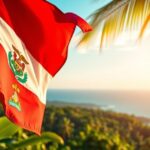Can Pensionado Visa Holders Work in Costa Rica? We Explain
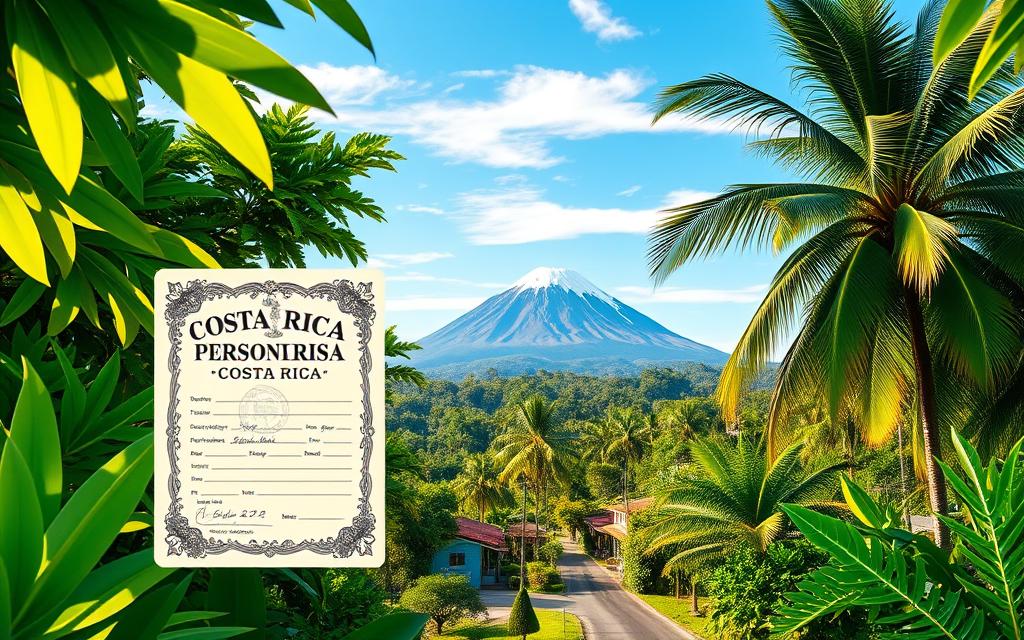
Costa Rica has become a haven for individuals and families seeking a better quality of life. With its lush landscapes, pleasant climate, and vibrant culture, it's no wonder this Central American country is a top destination for those looking to relocate.
The Pensionado visa program offers residency to foreign nationals with a guaranteed pension income of at least $1,000 per month. While this visa category provides numerous benefits, including tax advantages and healthcare access, there are certain restrictions on employment and business activities.
We'll explore the intricacies of the Pensionado visa, examining the income requirements, business opportunities, and the overall benefits of this residency program in Costa Rica.
Understanding the Pensionado Visa in Costa Rica
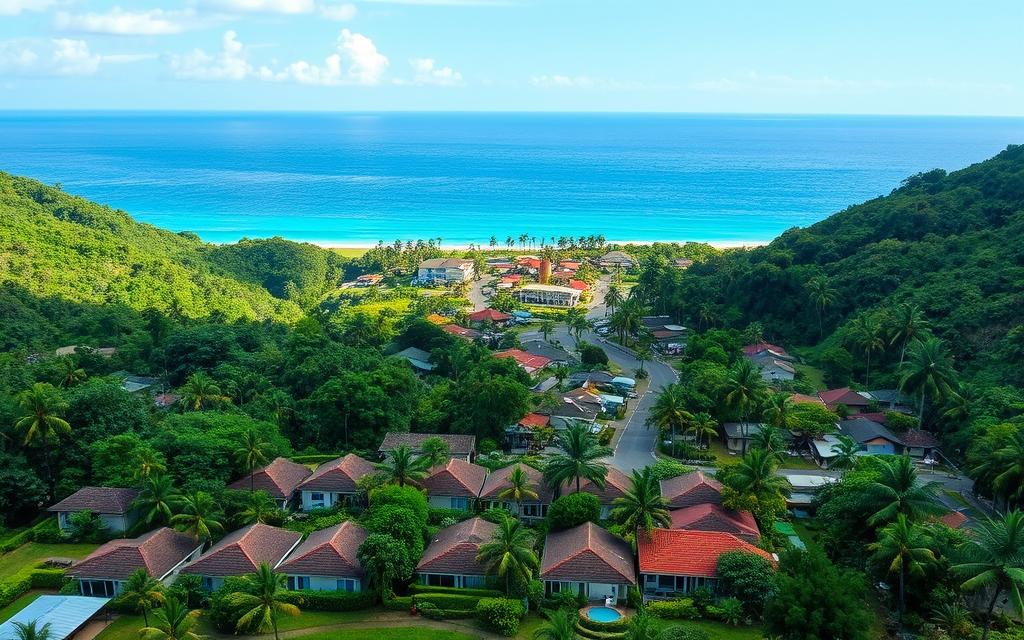
Understanding the specifics of Costa Rica's Pensionado Visa is crucial for a smooth transition to life in Costa Rica. The Pensionado Visa is a residency visa designed for individuals who receive a guaranteed pension or retirement income, offering them a chance to experience the rich culture and natural beauty of Costa Rica.
Pensionado Visa Defined
The Pensionado Visa is specifically for retirees or pensioners who have a stable income from a pension or retirement fund. This visa category is part of Costa Rica's effort to attract foreign investment and talent. To qualify, applicants must demonstrate a guaranteed lifetime pension income of at least $1,000 USD per month.
Eligibility and Documentation
To be eligible for the Pensionado Visa, applicants must meet several requirements. They must provide proof of pension income, which can include government social security benefits, private company pensions, or other retirement funds that guarantee lifetime payments. The documentation must be properly authenticated or apostilled if issued outside Costa Rica. Additionally, applicants are required to register with and contribute to Costa Rica's social security system, known as Caja Costarricense de Seguro Social, which typically costs around 9-10% of their stated monthly income.
Applicants must also have a clean criminal record from their country of citizenship, verified through an official background check. The application process involves submitting various documents, including a valid passport with at least six months of validity remaining, birth certificate, and marriage certificate if applicable.
Can Pensionado Visa Holders Work in Costa Rica?
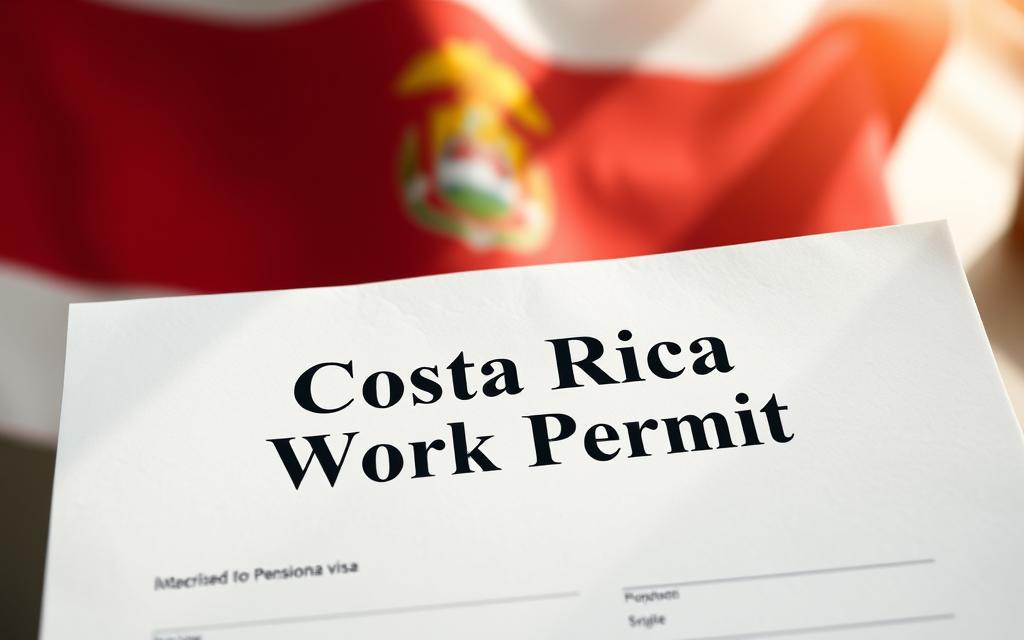
For Pensionado visa holders, navigating the complexities of work permits in Costa Rica can be challenging. The Costa Rican government has specific regulations regarding employment for Pensionado residents, and understanding these is crucial for maintaining legal residency.
Employment Restrictions for Pensionado Residents
Pensionado visa holders are generally not allowed to work in Costa Rica as employees. The Pensionado visa is designed for retirees or individuals with a pension, and its primary condition is that the holder does not engage in employment within the country. However, if an employer can demonstrate that the role an expat wishes to fill is necessary and cannot be filled by a Costa Rican citizen, it may be possible to obtain a special category work permit. This process can be lengthy, often taking between 3 to 8 months or longer.
To work legally, Pensionado residents must either apply for a different visa category that allows employment or wait until they are eligible for permanent residency after three years. The application process involves submitting the necessary documentation and demonstrating the necessity of the job function to the Costa Rican authorities.
Legal Consequences of Unauthorized Work
Engaging in unauthorized employment while holding a Pensionado visa can have serious legal consequences. Working without the proper authorization constitutes a violation of the visa conditions, which can result in the cancellation of residency status and the requirement to leave Costa Rica. The Costa Rican government actively enforces immigration regulations, and immigration authorities may conduct investigations into suspected unauthorized employment.
Penalties for unauthorized work can include fines, deportation, and potential restrictions on future visa applications or entry to Costa Rica. Employers who hire Pensionado visa holders without proper work authorization may also face legal consequences, including fines and sanctions from labor authorities. It is essential for Pensionado residents to understand and respect these restrictions to maintain good standing with Costa Rican immigration authorities.
Business Ownership and Investment Opportunities
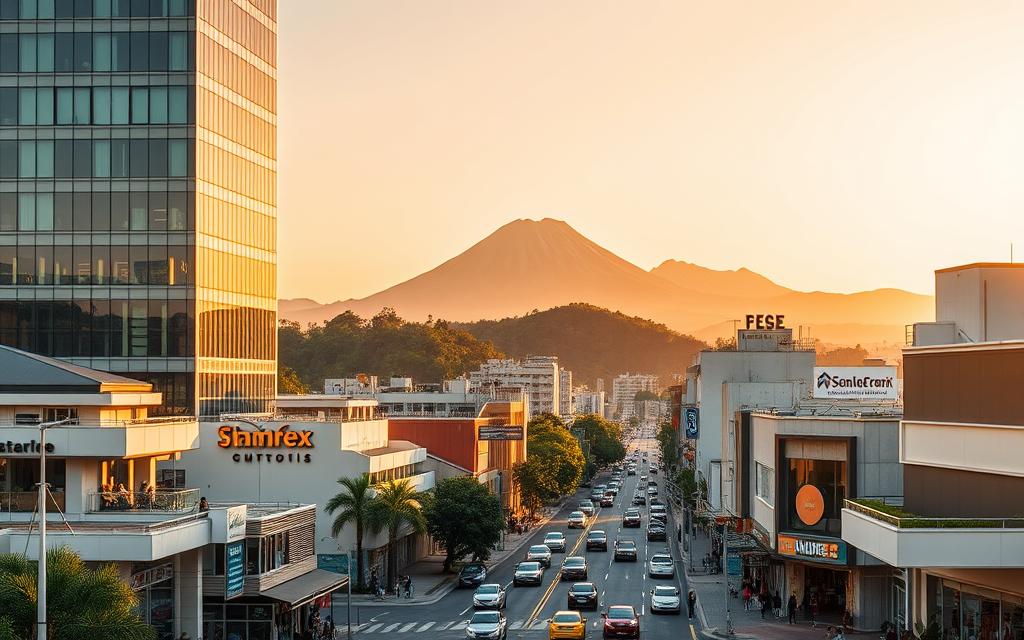
As a Pensionado in Costa Rica, individuals can benefit from the country's open approach to business ownership and investment. Costa Rica's favorable business environment, coupled with its political stability and robust legal framework, makes it an attractive destination for Pensionados looking to invest or start a business.
Owning a Business as a Pensionado
Pensionado visa holders can own a business in Costa Rica, providing them with the opportunity to generate additional income beyond their pension. This can be achieved by structuring the business to provide dividend income rather than salary, thus complying with the visa restrictions. For more information on the Pensionado visa application process, you can visit this resource.
Various business structures are available, including sole proprietorships, partnerships, and corporations. It's essential for Pensionados to consult with legal and financial advisors to determine the most suitable structure for their specific situation.
Receiving Dividends and Passive Income
Pensionados can receive dividends and passive income from their investments in Costa Rica. The country's territorial tax system means that foreign-source income, including pension payments and investment returns from abroad, typically remains untaxed. This provides a significant advantage for Pensionados, as it maximizes their retirement income.
Passive income opportunities include rental property investments, interest from local bank deposits, stock dividends from Costa Rican companies, and royalties from intellectual property. Proper accounting and tax reporting are crucial to maintain good standing with Costa Rican tax authorities.
Remote Work and Freelancing Options
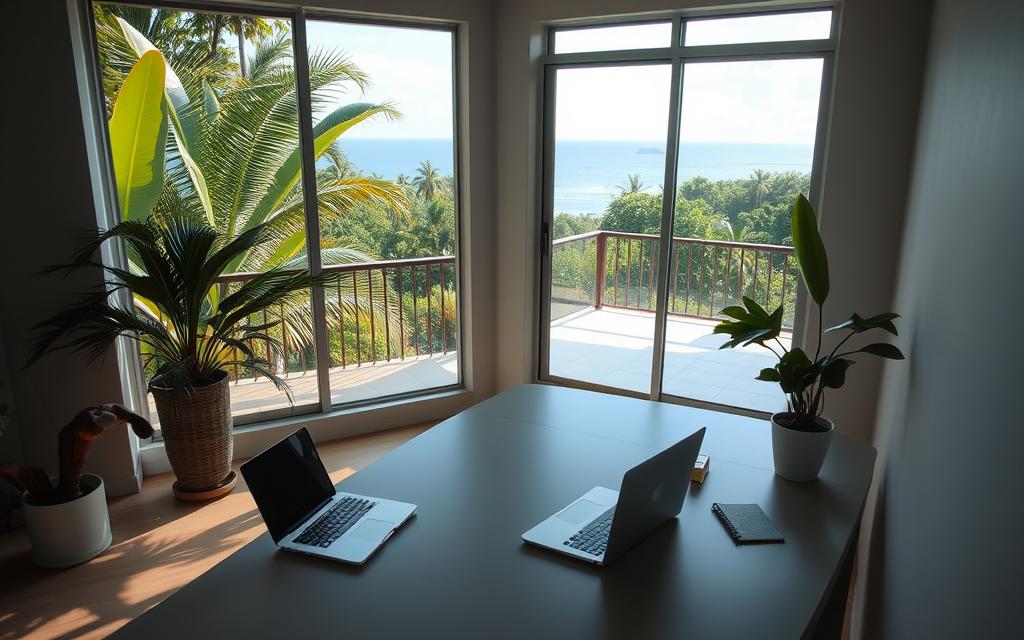
As Costa Rica continues to attract digital nomads and remote workers, understanding the nuances of working under a Pensionado visa becomes increasingly important. Costa Rica has established itself as a significant player in the global IT-BPO industry, specializing in services such as software development, IT consulting, customer support, and business process outsourcing.
Working for Foreign Companies
Pensionado visa holders are generally not permitted to work for Costa Rican companies without obtaining additional work authorization. However, working for foreign companies remotely is a different matter. Many Pensionados successfully engage in freelance activities or remote work for foreign clients, leveraging their professional expertise without establishing an employment relationship within Costa Rica.
It's crucial for Pensionados to maintain proper documentation of the foreign nature of their freelance clients or business activities to demonstrate compliance with visa restrictions if questioned by immigration authorities.
Digital Nomad Activities vs. Employment
There's a distinction between digital nomad activities and formal employment in Costa Rica. Digital nomad activities, such as freelance writing, programming, consulting, or managing online businesses for foreign clients, may be compatible with Pensionado status. However, these activities should remain secondary to retirement as the primary purpose of the Pensionado visa.
For those primarily seeking to work remotely, alternative visa options like the Rentista or Digital Nomad visa may be more appropriate. Costa Rica has introduced a specific Digital Nomad Visa, recognizing the country's growing accommodation to location-independent professionals.
Tax Implications for Pensionado Visa Holders

Understanding the tax implications of holding a Pensionado Visa in Costa Rica is crucial for retirees. As Pensionados enjoy their retirement in this beautiful country, they must also navigate its tax system.
Costa Rica's Territorial Tax System
Costa Rica operates under a territorial tax system, meaning it only taxes income generated within its borders. For Pensionado Visa holders, this generally implies that their foreign income is not subject to Costa Rican taxation. However, it's essential to understand the nuances of this system and how it applies to individual circumstances. According to recent clarifications, residents should be aware of their reporting requirements.
This territorial tax system is one of the reasons Costa Rica is attractive to retirees; it allows them to keep more of their pension income. Nonetheless, Pensionados should consult with tax professionals to ensure compliance with all tax laws.
Tax Obligations on Foreign Income
While Costa Rica may not tax foreign income, Pensionados typically remain tax residents of their home countries. This means they must continue to comply with their home country's tax laws, which may include reporting worldwide income. For U.S. citizens, for example, this includes filing with the IRS, potentially qualifying for the Foreign Earned Income Exclusion or Foreign Tax Credit.
Understanding tax treaties between Costa Rica and one's home country is also crucial, as these agreements can prevent double taxation and significantly impact overall tax obligations. Pensionados should approach tax planning as part of their overall financial strategy, potentially consulting with professionals familiar with both Costa Rican and home country tax laws.
Path to Work Authorization in Costa Rica
The journey to work authorization in Costa Rica involves several administrative steps, starting with understanding the requirements for transitioning from a Pensionado visa to a status that allows employment. For those who have chosen Costa Rica as their retirement destination, the Pensionado visa offers a unique lifestyle. However, some individuals may wish to supplement their pension with employment or engage in business activities.
Transitioning to Permanent Residency
Transitioning to permanent residency is a crucial step for Pensionado visa holders who wish to work in Costa Rica. To achieve this, individuals must meet specific eligibility criteria, including demonstrating a minimum income from their pension. For detailed information on the legal requirements for residency in Costa Rica, you can visit this resource. Once permanent residency is granted, individuals can then apply for work authorization, allowing them to legally engage in employment or start a business.
Even with permanent residency, certain administrative steps are required to obtain formal work authorization. This includes registration with the Costa Rican Social Security system (Caja) as an employee rather than a voluntary contributor. The work permit application process involves several key steps, including the employer demonstrating that the job position cannot be filled by a Costa Rican citizen.
Work Permit Application Process
The work permit application process in Costa Rica requires careful preparation and adherence to the government's regulations. The employer must first show that the job position is not available to or cannot be performed by Costa Rican job seekers. Following this, the employee can begin the work permit application process, which includes applying for a provisional visa, registering fingerprints with the Costa Rican Ministry of Public Security, and submitting the work permit application.
Required documents for the work permit application typically include proof of qualifications, an employment contract or job offer, and identification documents. The processing time for work permits can range from several weeks to several months, depending on the complexity of the case and current processing volumes. To navigate this process successfully, it's advisable to work with employers familiar with hiring foreign residents and seek assistance from legal professionals specializing in immigration and labor law.
Alternative Residency Options for Those Wanting to Work
For individuals seeking to work in Costa Rica, alternative residency options are available beyond the Pensionado visa. While the Pensionado visa is ideal for retirees, other visa categories cater to those who wish to work or start a business in the country.
Rentista Visa Option
The Rentista visa is another residency option for foreigners who can receive a regular income from outside Costa Rica. This visa category is suitable for individuals who have a stable income but are not necessarily retirees. To qualify, applicants must demonstrate a minimum monthly income from a reliable source. The Rentista visa provides flexibility for those who want to live in Costa Rica without the restrictions associated with the Pensionado visa. For more information on transitioning from a Rentista visa to permanent residency, you can visit this resource.
Inversionista Visa Option
The Inversionista visa is designed for investors who wish to invest in Costa Rica. To qualify, applicants must invest at least $150,000 USD in a Costa Rican business or property. This visa category not only allows for significant investment but also enables the visa holder to actively manage their investment or business. Inversionista visa holders can create employment opportunities for Costa Rican nationals, which is viewed favorably by immigration authorities. While the Inversionista visa does not automatically grant work authorization, it provides a pathway to permanent residency after three years, at which point work restrictions are lifted.
Application Process for Pensionado Residency
The Pensionado residency application process in Costa Rica is a multi-step procedure that requires careful preparation and attention to detail. As we explore the requirements and timeline for obtaining Pensionado residency, it's essential to understand the steps involved in the application process.
Required Documents and Preparation
To apply for Pensionado residency, you'll need to gather several key documents, including proof of income, a valid passport, and a birth certificate. For a detailed list of required documents and the minimum income requirements, you can visit this resource. Ensuring that your documents are in order and meet the specific requirements is crucial for a smooth application process.
It's also important to prepare your application carefully, as any errors or omissions can delay the processing of your application. We recommend working with a qualified immigration attorney or expert to help guide you through the process.
Timeline and Renewal Requirements
Once you've submitted your application, you'll receive a "Hoja de trámite" (processing sheet) that allows you to remain in Costa Rica legally while your application is being processed. The processing time can vary significantly, but it often takes several months to a year.
The initial validity period of Pensionado residency is typically two years, after which renewal is required. To renew your residency, you'll need to demonstrate that you've continued to receive your qualifying pension income and have spent at least four months per year in Costa Rica. We recommend planning ahead to ensure that you meet the renewal requirements and maintain your legal residency status.
Living in Costa Rica as a Pensionado
Embracing life as a Pensionado in Costa Rica means enjoying a relaxed pace of life amidst nature's beauty. As you settle into your new life, understanding the requirements for maintaining your residency status is crucial.
Healthcare and Social Security Requirements
Pensionados are required to be part of Costa Rica's social security system, known as Caja. To maintain healthcare coverage and keep your residency in good standing, it's essential to continue making Caja payments even during periods of absence from the country. This ensures that you have access to Costa Rica's healthcare services when you need them.
For those planning to drive, it's vital to note that your driver's license validity is tied to your visa status. To drive legally, you'll need to leave Costa Rica every 180 days to have your passport stamped, as your driver's license is only valid as long as your visa is valid.
Residency Maintenance Requirements
To maintain your Pensionado residency status, you must reside in Costa Rica for at least one day per year. While this is a minimal requirement, renewal applications typically necessitate evidence of more substantial time spent in the country, around four months per year. This flexibility allows Pensionados to split their time between Costa Rica and other countries or make extended trips for family or healthcare reasons.
Practical considerations include managing your residence during absences, maintaining local bank accounts, and keeping utilities active. Tracking and documenting your time in Costa Rica is advisable to ensure compliance with residency requirements, especially for those making frequent international trips.
Conclusion
In conclusion, Costa Rica's Pensionado visa program offers a unique blend of benefits and restrictions that cater to retirees seeking a relaxed lifestyle. We've explored the various aspects of this program, including the restrictions on direct employment, opportunities for business ownership and passive income, and the path to work authorization through permanent residency.
The Pensionado visa is designed for retirees with a guaranteed pension income, allowing them to enjoy Costa Rica's natural beauty and favorable climate. While work restrictions apply, Pensionados can engage in business ownership, receive dividend income, and work remotely for foreign companies. Alternative visa options like Rentista and Inversionista categories are available for those who wish to work or manage a business actively.
Costa Rica's territorial tax system provides significant tax advantages, generally not taxing foreign-source income. After seven years of legal residency, foreigners may apply for Costa Rican citizenship by naturalization, which removes all work restrictions and provides the right to a Costa Rican passport. With its numerous benefits, including healthcare access and quality of life, the Pensionado visa program makes Costa Rica an attractive retirement destination.


